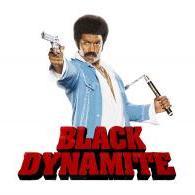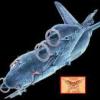Leaderboard
Popular Content
Showing content with the highest reputation on 02/03/2017 in all areas
-
There is a lot of discussion on this mishap on the Cirrus owners forum. My sincerest condolences to his friends and colleagues Nickel on the grass...2 points
-
Hello everyone, I recently got back from my trip to Wright-Patterson and I could not be happier with my experience there. Not everything was smooth sailing for me, as far as my pre-existing eye condition was concerned, but the folks there went incredibly far out of their way to ensure I had every opportunity to pass their tests. For that, I am extremely grateful for their care in what they do and ultimately, allowing me to pursue my dream. A little bit about my experience: I had an eye muscle disorder that I discovered a few years ago after preemptively visiting an optometrist to make sure everything with my eyes were kosher. Upon finding out what I had, I was crushed. Over the course of the next year, I found a specialist, explained to him what my intentions were as far as pursuing this career and ended up having surgery to correct the problem. The surgery went very well, but that still did little to unease the unsettling feeling I had about my chances. I read numerous stories about others who had similar conditions; I read the AFI's, waiverability guide and medical publications; I even messaged a few professionals on these very forums to gain as much insight as possible. From all of these sources, my confidence on passing was extremely low. Nevertheless, I continued to interview all over the country in pursuit of my passion, even with that overwhelming sense of uncertainty. The last few years have been the most trying test of my endurance, mentally. I spent thousands of dollars travelling for interviews, faced numerous rejections, put off career advancement in my fall back career, all for just the chance at a shot for my dream job. I knew, at least for me, that if I had not done this, it would plague me for the rest of my life knowing I had given up. I had engulfed myself with everything there was to know about my condition and how it would be measured/tested. I ascertained that my biggest hurdle was going to be depth perception, as is for most people, even with the best of eyes. I am prior enlisted and have had a history of failing the depth perception years back at MEPS. I spent months researching techniques people use to train their eyes to pass the test to include purchasing the Magic Eye book, as many of you have recommended. Even so, I was still not confident come judgement day that I was indeed going to pass. Once arriving on day one, you are not given an exact itinerary on what order you will be accomplishing all the tests, so I sat there stewing in the inevitable encounter with my kryptonite. It ended up coming relatively soon on the first day and it was not pleasant. I had measured 20/20 uncorrected, but come time to do the depth perception, I could not seem to make it work for me. This revelation that my hopes and dreams just came to an end began to sink in. Nevertheless, they had me do a full workup with the optometrist there to figure out what my underlying problem was. We went over many more eye tests and had very long, comprehensive talks about what they were seeing, what my chances/options were, what their role is as far as having a standardized approach in measuring/testing applicants. All of these things really did a great job at putting me at ease. It was the kind and length of talks from a doctor that no civilian doctor, at least in my experience, has taken out of their day to explain exactly what is going on. They made it abundantly clear that they will do everything in their power to ensure you have every opportunity to demonstrate that if you CAN pass, they will pass you. They ended up prescribing me glasses to retake the exam about mid-way through day two to see if it was simply an acuity problem not being able to see depth perception. I wore the glasses for a few minutes, retook the test, and failed again. This, again, made my stomach turn upside down. I was then given the advice to wear the glasses for a little while longer to have my eyes adjust some more. Day 3: Nearly everyone I was there with had already been given the all clear, having a great time touring the museum there (which is a must). I knew it was my make or break day. I wore the glasses the entire night before and also woke up early in the morning on day three to walk around outside to get my eyes readjusted. I had found out that walking around outside, particularly looking about 3 feet in front of me when walking, seemed to have the most of an effect on my eyes. First thing in the morning, we began to do some more evaluations with some easier to see depth perception tests that they had there. These tests were rated at much higher arcs than the standard needed to pass, but were instrumental in helping me with the technique that best worked for me to bring them out. Personally, I found out that opening my eyes up wide, as opposed to squinting (which I was doing before), and vaguely starring at the entire block of circles was working for me. Miraculously enough, I eventually got to the point to where I could legitimately see all the way through line D. (This was quite the emotional roller-coaster for me at this point). I was incredibly excited at this point that the future that I thought I had lost was slowly coming back to me. However, I was not quite out of the woods. Even though I had gotten through line D, it was a struggle, to say the least. The doctors had long talks with me about their standards and liability they assume by making such decisions and it was in mine, and their best interest, to ensure that this was not a one-time thing. They needed to be certain when you leave there, that you are going to be able to pass it every year after that. They had me do a few more depth perception tests (and passed) and more workups with multiple doctors and they came to the agreement that I met their standards. I cannot describe to you what the feeling of years of doubt being immediately lifted off of my shoulders felt like. I am so extremely grateful for the doctors and techs there at Wright-Patterson for taking so much time to work with me through all of this! Thank you so much!! To those out there still in the hunt or awaiting your turn at MFS/FC1, never give up! Be as prepared as possible. Make appointments on your own so there are no surprises. If you find a surprise, get a second opinion. Research every option. Above all, remain calm and be as polite as possible. I know the former is easier said than done, but it can truly help. Good luck to everyone!1 point
-
It's curious how the past Administration received, largely, a pass here at Baseops due mainly to the auto-racisim charge that was leveled at dissent. Now that there's a white boy with a bad combover in the seat, it's game on. I am absolutely digging the amount of consternation and gnashing of teeth that this administration is causing on both sides of the political aisle. There have been comments in this thread about how even the GOP greybeards are aghast at Trump & Co. and their nascent methods of governing. The first, obvious question is "How well did those greybeards work out and improve our position at home and abroad?" Oxen are being gored and I am pleased.1 point
-
1 point
-
I have a few guesses. I don't know how much fucking studying it takes to just ask the guys in the field why they are bailing at the 4-6 year point.1 point
-
I'm not totally surprised by it, as the Army FW program really isn't as in-depth as the Air Force UPT. But having gone through a full RW Qualification with the Army and then another FWME Qual totaled nearly 21 months of school for me. I don't think I can suffer through another flight qualification pipeline at this point in my life. I'm approaching age 32 and I just don't feel like starting from the beginning again especially after already having a 9 month FW deployment and accruing over 1K mil hours.1 point
-
1 point
-
1 point
-
Not Friday yet, but here's a quick history lesson: The AAF graduated over 193,000 pilots (just pilots, not bombardiers, navs, flt engineers, gunners, etc.) in 6 years, between Jul '39 and Aug '45. There were only 966 student pilots in training in Sep 39. By Dec 43, there were 74,000 pilots in stateside training alone. Bottom line, Of course there was little to no briefing. The instructors were barely more qualified than their students. They had comparatively little knowledge to offer, and minimal time to impart what wisdom they did have. Wartime flying "training" was less training than Darwinian survival of the fittest, because it was the blind leading the blind. Consequently, there were 136,000 flying training eliminees and fatalities in stateside training alone. Over 65,000 aircraft were lost in the CONUS alone during the war (15,000 of them were heavy & very heavy bombers). My point--Wanna get people killed or injured? Fight wars without effective planning, briefing and postmission debriefing. WW II sounds really awesome, until you realize the human carnage and piles of bent metal that went along with it. TT1 point
-
Question on DOPMA: I understand the limitation on grades O-4 and above is based on the amount of total officers in the force. Is that based on authorized end strength (as allowed in the NDAA), or on actual population of officers at a given point in time? Based on the end-strength increase from the FY17 NDAA (4K total?), will we see an immediate increase in the amount of Maj/Lt Col/Cols allowed, or will we not see that increase until the additional officers are assessed? Will this have an impact on promotion and continuation for CY17 boards?1 point
-
Not an AMC planner, so my advice is worth what you paid for it. I suspect it'll be like Obamacare--gotta get it on the ramp before we see what it can really do; hence, difficult to predict with certainty how it'll be deployed. BLUF, I suspect the KC-46 will be a great airplane to go to, if you're either (1) single and like to be gone a ton, or (2) are married and don't like your family: - Tanker requirements always exceed the AD's capacity to meet them, so KC-46 crews--just like KC-135 and -10 crews--will get tasked heavily to meet demand - The KC-46 will have capabilities that the other two tanker airframes lack, which will make them all the more desirable by COCOMs - Big Blue, wanting to show off the wisdom of buying the KC-46, will be all the more motivated to deploy it downrange/ employ it all over the world. Even if it didn't have many requirements, they'd come up with some - Once we're in full-rate production, the aircraft will arrive faster than adequate numbers of aircrews can be produced to fly them. Big Blue, wanting to highlight the aircraft's capabilities, will accept the "necessity" to overtask the limited numbers of crews, in order to showcase their shiny new plane (see bullet above) - KC-46 aircrew production will be further hobbled by the fact that Big Blue is prioritizing CAF pilot production, while MAF bubbas walk toward the light at the end of their SUPT commitments - Better still, the ARC owns about half the tanker mission, but it's got its own manning woes; less help from ARC = heavier taskings for AD Hopefully someone who flew C-17s in the late 90s/early 2000s will chime in; my impression is that community experienced much the same dynamic. I seem to remember my C-17 buddies just getting crushed during this timeframe. If you're highly motivated/ambitious, want to fly a bunch and make your mark in a community that will surely still be defining itself, the KC-46 will be an awesome opportunity. You'll be part of developing tactics and writing regs to a degree that is nigh to impossible in older, more established communities. Best of luck, but go in with your eyes wide open. TT1 point
-
1 point
-
Animal, getting a useless, box checking master's degree is a personal choice. You shouldn't use the wide latitude the AF tuition assistance program gives you to get a master's degree in a subject that you care about, from a university that you choose, in a place and time that fits your needs, to bash the program for being a waste of time. If you want to use a program that teaches you nothing, takes little time and still meets the minimum standard required to qualify as an advanced academic degree (busywork, as you call it), that is your choice. A master's in business, military studies, international relations, history or government will help you be a better senior AF officer. The last thing people should want is commanders and boards discriminating the quality and location of your AAD for promotion to O-6. Setting the minimum standard relatively low for a subjective requirement prevents alma mater discrimination and bullshit assessments about how hard you worked to get your degree, or how often you were published, like we see in the academic world. Hard work, success and competency are important at promotion boards, but an assessment of the ability to succeed in the next grade is also required. This assessment is subjective because it is predictive. We use stratifications and push lines to explain this assessment. Businesses don't promote merely based on hard work and success at current job. They may pay more to those with experience and a good record (like we do with pay increases in the same grade every two years), but they don't promote to upper management without considering whether they have the skills to succeed at upper management. Agree, we should be discriminating and selective about who gets promoted and I would argue that we are. But I also think the senior leaders need to be the people who determine how to discriminate and select, not the CGOs. What CGOs value at the time may not be what makes them successful at FGO responsibilities. The best critiques we can make are to point out how our system needs to be improved and how we selected the wrong leaders should be based on the specific leader's shortcomings and leadership failures. When morale is low, unit performance is below standards, resources are wasted, and the mission is not being accomplished, there is an obvious failure of leadership (possibly at many levels) that must be corrected. I think AF senior leadership is trying to correct that rotten core of leadership in the missile community. We should reassess what we got wrong at promotion boards and command screening boards that predicted these officers would succeed when they clearly did not. A useful way for senior leaders to evaluate the performance of their subordinate commanders is to read the anonymous but honest opinions of that commander's subordinates and peers. Unit climate assessments, IG/congressional complaints, face to face feedback, informal feedback (including social media) can all give indications of leadership failures. 360 feedback should be implemented immediately for all commanders. I'm not sure why we are so reluctant to do this. Commanders and senior leaders should be held to higher, more stringent standards and their leadership abilities should be more formally evaluated.1 point
-
Following along here as best I can (I think SIE = DOR, and Have no idea what 62 is other then maybe intel...), and for the most part I'm with Bender. There is nothing wrong with having second thoughts about being a pilot before you start training- plenty of people do. There are going to be days in training where you'll have those second thoughts again... I'll admit that there were times prior to showing up to flight school that I had second thoughts... At one point I questioned whether I would like being a pilot for 10yrs (I had zero flight time at the time). Went through Navy IFS, and liked it,but didn't really miss flying when I wasn't. Got stashed for almost a year working for a government agency doing some pretty interesting things and really liked what I was doing and wasn't sure I'd enjoy flying as much as I liked the type of stuff I was exposed to there. To those of you whose motivation and dreams have never waivered and are really die-hard, good for you but I've seen a lot of guys like that really suck, wash out, or quit... I think a lot of it had to do with the reality of where they ended up not matching with the fantasy they had built up their head. Hopefully you all have some true understanding that life as a military aviator isnt all Top Gun and Iron Eagle... Anyways, I showed up to primary and I really liked it far more then any of the GA flying I had done prior to comming here (granted it wasnt that much). I'm far happier during the phases of training where I'm actually flying the plane- even on those days where I've had a shitty event. As for the "doesn't mean you're constantly walking around thinking this is the greatest job on earth. It's work." comment, I'll agree to the first part, but say that it's pretty ****ing cool life, and my friends and I have yet to consider what we do as work... in fact, we don't associate what we do with the paychecks we recieve... and yes I know you AF studs live in misery in flight school compared to us. To jake, above is one perspective. To answer your question, No- where I am now is not where my imagination placed me most of the time growing up. I have friends that are living my dream- I am living the dream of some of my other friends. Dreams and reality don't always get to match... at least not right away. (Remember folks, no matter what NEEDS OF THE SERVICE outweigh all other considerations... which is, if I remember correctly, what caused the original poster to be in his position in the first place.)That being said, it's still pretty bad ass. [ 02. May 2006, 00:55: Message edited by: Zippy ]1 point
-
Don't put words in my mouth bro. It's entirely possible to think the Dems are a bunch of pussified apologists AND be extremely weary of a Donald Trump presidency.-1 points










